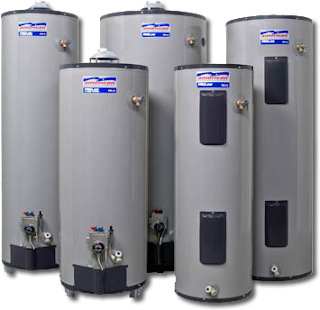First, let’s cover how each type works. An electric water heater uses electric resistance coils to heat water, while a gas unit burns fuel like natural gas. Pretty simple.
Differences of Gas Versus Electric
Now, according to this quick comparison, around 60% of homes in the United States use gas water heaters and 40% use electric water heaters. And for a number of good reasons.
While gas water heaters are less energy-efficient than electric water heaters, the high cost of electricity actually makes electric heaters more costly.
A gas water heater also has a faster recovery time, taking about an hour to heat up a 50-gallon tank. This is a much faster time than an electric heater, which takes several hours to heat up the same sized tank of water. Plus, if you have an electrical power failure, gas water heaters will still work while an electric will be unavailable until the power is restored.
Because of this difference in recovery times, our experts at Honest Plumbing recommend a gas water heater for families and households of four or more. Nobody wants to get stuck taking a cold shower, especially in the middle of winter!
On the flipside, and as we mentioned earlier, gas water heaters are relatively inefficient because heat escapes from exhaust gasses and the walls of the tank. It’s a nice convenience to have hot water quickly, but it’s constantly losing energy. One thing that can help increase energy efficient is to have your installer add two inches of foam insulation around the storage tank.
As for price, there’s not a big difference for gas versus electric water heaters. Just remember that over time, you’ll be paying more on your utility bill if you go with electric. Depending on water quality and maintenance, electric water heaters tend to last a bit longer, so at least you won’t be paying for a replacement quite as soon as a gas unit.
If you’re swayed towards gas versus electric water heaters, the ultimate deciding factor may be whether or not you already have a gas line in your house. Installing one, along with a vent for exhaust heat, can be more expensive than it may be worth.
Options Beyond Gas or Electric Tank Units
In the United States, whether electric or gas, most homes have a storage tank type of water heater, which stores 20-100 gallons of water hot and is ready to be used at any time. It makes a lot of water available, but it you need to factor in that recovery time.
A more high-efficiency gas heater option is a unit with a condensing boiler. It uses heat from the exhaust gasses to pre-heat cold water coming into the tank. This can give you a 20% increase in efficiency over traditional gas storage units. The biggest obstacle is that condensing units are more expensive to buy.
You could also look into an electric water heater that uses a heat pump, which takes heat from the surrounding air to heat the water. And it comes with electric resistance elements to provide backup heating when needed. These heat pumps are highly efficient, but also a bit spendy.
One final option is the tankless water heater, which you’ve probably heard a lot about. It heats water on-demand, without wasting energy continually keeping water hot in a giant tank. While the premise sounds great, there are a few cons for this one, including having enough voltage to power the electric models and proper venting for gas units. And of course, they also cost more.
If you’re looking to replace your water heater, it helps to do research and compare gas versus electric water heaters – as well as other options if you have a few extra dollars in your budget. Whether you live in Arvada or the metro Denver area, Honest Plumbing can help you make the right choice for your needs and provide professional installation. Contact us today to get started.

